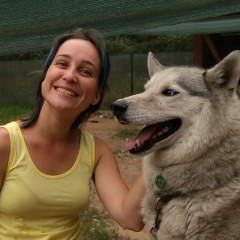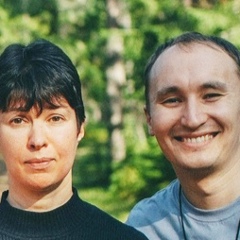Про грудное кормление, еду, медикаменты, кофе, алкоголь и колики.
Еда.
Несмотря на многочисленные советы, что кормящим матерям ничего нельзя, почерпнутая мной из медицинской современной литературы инфа говорит, что всё можно.
То есть: если прежде вы придерживались принципов здорового питания, то можете не заморачиваться вовсе и просто продолжать их придерживаться. Если же вы ели всякий чипсово-консервный шлак, то просто начните придерживаться принципов здорового питания. И всё. Никаких "греча и творог теперь твоя еда, женсчино".
Несколько прочих моментов:
1) Те продукты, которые якобы ведут к газообразованию у детей (капуста, бобовые и т.д.) НИКАК не влияют на грудное молоко ВООБЩЕ. Потому что газообразование от этих продуктов возникает у того, кто их ест, по причине содержания в них определенного типа углеводов, который наш организм не в состоянии переварить. Они, так сказать, в первозданном виде поступают в кишку, где бактерии их ферментируют. А раз уж эти углеводы неперивариваемые, то и в кровь они не поступают вообще никак, значит и в молоко они не поступают и ничего у ребенка не могут вызвать априори.
2) Аллергены. Если у ребенка есть аллергия на что-то, она, конечно, проявится, а если аллергии нет, можете себя не сдерживать. Для проверки нужно просто пробовать аллергены по чуть-чуть. Если реакции в виде высыпаний и видимых проблем с жкт у ребенка нет, можно есть апельсины, клубнику и прочие радости жизни и не париться вообще. У моего была сыпь на виноград, так что моя диета ограничена лишь виноградом.
3) Как вегетарианка, я ем очень много грибов и продолжаю их есть сейчас, что не порождает никаких проблем ни у меня, ни у малыша. Более того, я в жизни не слышала о том, чтобы у кого-то могла быть на них аллергия (все бывает в этом мире, конечно, но все же), так что я в корне не зрю, чем вызван запрет на несчастные грибы. И я бы настоятельно посоветовала вам попробовать продолжать их есть или хотя бы ввести чуть-чуть в рацион. Скорее всего все будет ОК.
Кофе
В результате проведенных исследований было выявлено, что 5 чашек кофе, выпитых матерью приводит к наличию в крови и молоке 1 мг (это очень мало) кофеина. Соответственно, 1 чашка - 1/5 мг кофеина (это вообще совсем мало). Ребенка это не затронет вообще никак.
Медикаменты
А вот здесь по-разному бывает, т.к. часть лекарств практически не попадает из крови в молоко, а часть попадает довольно мощно.
Фармацевтические компании обычно пишут страшные надписи про "с осторожностью" и "если польза блабла больше нанесенного вреда", и если вы встретите такие слова, а не четкие цифры или дозволение принять лекарство, это означает только одно: компания пожлобилась проводить какие-то исследования вообще, и на всякий случай оберегает себя от жалоб покупателей.
Однако есть те, кто исследования провести не поленился. Инфу об этом(да и многом другом) можно поискать здесь www.pubmed.gov - в главной медицинской базе данных. Но готовьтесь к тому, что сайт полностью на английском. От себя могу сказать, что 100% можно ибупрофен и парацетомол, ибо концентрация их в грудном молоке будет в 50 раз меньше той дозы, что назначил бы самому новорожденному ребенку врач, будь тот болен.
Алкоголь
Если кормящая женщина выпьет бутылку вина, содержание алкоголя в молоке будет 0,4 - 0,5%, если бокал - еще меньше, что, в любом случае, меньше, чем процент содержания алкоголя в кефире, которым некоторые новорожденных благополучно докармливают.
Так что нужно себя, конечно, контролировать, но "сухой закон" на период грудного вскармливания можно не соблюдать:).
Колики.
Как я уже писала о жирном и нежирном грудном молоке, второе усваивается лишь при обильном наличии первого, однако есть масса чуваков, которых врачи убедили кормить ограниченное время и не кормить, когда, скажем, вы только что покормили ребенка и, казалось бы, он сыт, хотя и просит. - Весьма вероятно, что ребенок наел много водянистого молока и мало жирного, и не добрал по жиру и каллориям. Поэтому он дождался, когда часть содержимого желудка опустится ниже, чтобы "добрать", а вы ему не даете, в результате чего потом у него начинает болеть живот, и он орёт. Так что корень зол, вероятно, в этом. Или в незрелой микрофлоре ЖКТ, с которой все равно ничего не сделать, нужно только ждать.
На этом у меня всё.
П.С. Инфа взята из книги доктора Карлоса Гонсалеса "Подарок на всю жизнь", статей с сайта La Leche Liga и сайта ВОЗ.
Такие дела.
Еда.
Несмотря на многочисленные советы, что кормящим матерям ничего нельзя, почерпнутая мной из медицинской современной литературы инфа говорит, что всё можно.
То есть: если прежде вы придерживались принципов здорового питания, то можете не заморачиваться вовсе и просто продолжать их придерживаться. Если же вы ели всякий чипсово-консервный шлак, то просто начните придерживаться принципов здорового питания. И всё. Никаких "греча и творог теперь твоя еда, женсчино".
Несколько прочих моментов:
1) Те продукты, которые якобы ведут к газообразованию у детей (капуста, бобовые и т.д.) НИКАК не влияют на грудное молоко ВООБЩЕ. Потому что газообразование от этих продуктов возникает у того, кто их ест, по причине содержания в них определенного типа углеводов, который наш организм не в состоянии переварить. Они, так сказать, в первозданном виде поступают в кишку, где бактерии их ферментируют. А раз уж эти углеводы неперивариваемые, то и в кровь они не поступают вообще никак, значит и в молоко они не поступают и ничего у ребенка не могут вызвать априори.
2) Аллергены. Если у ребенка есть аллергия на что-то, она, конечно, проявится, а если аллергии нет, можете себя не сдерживать. Для проверки нужно просто пробовать аллергены по чуть-чуть. Если реакции в виде высыпаний и видимых проблем с жкт у ребенка нет, можно есть апельсины, клубнику и прочие радости жизни и не париться вообще. У моего была сыпь на виноград, так что моя диета ограничена лишь виноградом.
3) Как вегетарианка, я ем очень много грибов и продолжаю их есть сейчас, что не порождает никаких проблем ни у меня, ни у малыша. Более того, я в жизни не слышала о том, чтобы у кого-то могла быть на них аллергия (все бывает в этом мире, конечно, но все же), так что я в корне не зрю, чем вызван запрет на несчастные грибы. И я бы настоятельно посоветовала вам попробовать продолжать их есть или хотя бы ввести чуть-чуть в рацион. Скорее всего все будет ОК.
Кофе
В результате проведенных исследований было выявлено, что 5 чашек кофе, выпитых матерью приводит к наличию в крови и молоке 1 мг (это очень мало) кофеина. Соответственно, 1 чашка - 1/5 мг кофеина (это вообще совсем мало). Ребенка это не затронет вообще никак.
Медикаменты
А вот здесь по-разному бывает, т.к. часть лекарств практически не попадает из крови в молоко, а часть попадает довольно мощно.
Фармацевтические компании обычно пишут страшные надписи про "с осторожностью" и "если польза блабла больше нанесенного вреда", и если вы встретите такие слова, а не четкие цифры или дозволение принять лекарство, это означает только одно: компания пожлобилась проводить какие-то исследования вообще, и на всякий случай оберегает себя от жалоб покупателей.
Однако есть те, кто исследования провести не поленился. Инфу об этом(да и многом другом) можно поискать здесь www.pubmed.gov - в главной медицинской базе данных. Но готовьтесь к тому, что сайт полностью на английском. От себя могу сказать, что 100% можно ибупрофен и парацетомол, ибо концентрация их в грудном молоке будет в 50 раз меньше той дозы, что назначил бы самому новорожденному ребенку врач, будь тот болен.
Алкоголь
Если кормящая женщина выпьет бутылку вина, содержание алкоголя в молоке будет 0,4 - 0,5%, если бокал - еще меньше, что, в любом случае, меньше, чем процент содержания алкоголя в кефире, которым некоторые новорожденных благополучно докармливают.
Так что нужно себя, конечно, контролировать, но "сухой закон" на период грудного вскармливания можно не соблюдать:).
Колики.
Как я уже писала о жирном и нежирном грудном молоке, второе усваивается лишь при обильном наличии первого, однако есть масса чуваков, которых врачи убедили кормить ограниченное время и не кормить, когда, скажем, вы только что покормили ребенка и, казалось бы, он сыт, хотя и просит. - Весьма вероятно, что ребенок наел много водянистого молока и мало жирного, и не добрал по жиру и каллориям. Поэтому он дождался, когда часть содержимого желудка опустится ниже, чтобы "добрать", а вы ему не даете, в результате чего потом у него начинает болеть живот, и он орёт. Так что корень зол, вероятно, в этом. Или в незрелой микрофлоре ЖКТ, с которой все равно ничего не сделать, нужно только ждать.
На этом у меня всё.
П.С. Инфа взята из книги доктора Карлоса Гонсалеса "Подарок на всю жизнь", статей с сайта La Leche Liga и сайта ВОЗ.
Такие дела.
About breastfeeding, food, medicine, coffee, alcohol and colic.
Food.
Despite the numerous tips that nothing is possible for nursing mothers, the info I learned from modern medical literature says that everything is possible.
That is: if before you adhered to the principles of a healthy diet, then you can not bother at all and just continue to adhere to them. If you ate any chips and canned slag, then just start to adhere to the principles of a healthy diet. And that’s it. No "buckwheat and cottage cheese is now your food, feminine."
A few other points:
1) Those products that supposedly lead to gas formation in children (cabbage, legumes, etc.) DO NOT affect breast milk AT ALL. Because gas formation from these products occurs in the one who eats them, because of the content in them of a certain type of carbohydrate, which our body is not able to digest. They, so to speak, in their original form enter the intestine, where bacteria ferment them. And since these carbohydrates are non-digestible, then they don’t enter the blood at all, it means they don’t enter the milk and they can cause a priori nothing in the child.
2) Allergens. If a child has an allergy to something, it will certainly manifest itself, but if there is no allergy, you can not restrain yourself. To check, you just need to try allergens a little bit. If the child does not have a reaction in the form of rashes and visible problems with the gastrointestinal tract, you can eat oranges, strawberries and other joys of life and not steam at all. My had a rash on grapes, so my diet is limited only to grapes.
3) As a vegetarian, I eat a lot of mushrooms and continue to eat them now, which does not cause any problems for me or the baby. Moreover, I have never heard in my life that someone could have an allergy to them (everything happens in this world, of course, but still), so I’m fundamentally not at all aware of the ban on unfortunate mushrooms. And I would strongly advise you to try to continue to eat them, or at least introduce a little bit into the diet. Most likely everything will be OK.
Coffee
As a result of the studies, it was found that 5 cups of coffee drunk by the mother leads to the presence in the blood and milk of 1 mg (this is very little) of caffeine. Accordingly, 1 cup is 1/5 mg of caffeine (this is generally very small). This will not affect the child at all.
Medicines
But here it happens differently, because some of the drugs practically do not get from the blood to milk, and some of them get quite powerful.
Pharmaceutical companies usually write scary inscriptions about “with caution” and “if the benefits blab more than the harm done”, and if you come across such words rather than clear numbers or permission to take the medicine, this means only one thing: the company has become embittered to conduct some research at all , and just in case, protects itself from customer complaints.
However, there are those who are not too lazy to conduct research. Information about this (and much more) can be found here www.pubmed.gov - in the main medical database. But get ready for the fact that the site is completely in English. From myself I can say that ibuprofen and paracetamol can be 100%, because their concentration in breast milk will be 50 times less than the dose that a doctor would prescribe to the newborn child if he were sick.
Alcohol
If a nursing woman drinks a bottle of wine, the alcohol content in milk will be 0.4 - 0.5%, if the glass is even less, which, in any case, is less than the percentage of alcohol content in kefir that some newborns safely feed.
So you need to control yourself, of course, but the "dry law" for the period of breastfeeding can not be observed :).
Colic.
As I already wrote about fat and non-fat breast milk, the second is absorbed only when the first is plentiful, but there are many dudes whom the doctors convinced to feed for a limited time and not to feed when, say, you just fed the baby and, it would seem, he’s full , although he asks. - It is very likely that the child ate a lot of watery milk and a little fat, and did not get fat and calories. Therefore, he waited for some of the contents of the stomach to go down to "get", and you do not give him, as a result of which his stomach starts to hurt, and he yells. So the root of evil is probably this. Or in the immature microflora of the gastrointestinal tract, with which there is still nothing to do, you just have to wait.
That’s all for me.
P.S. Infa is taken from Dr. Carlos González’s book, A Gift for Life, articles from La Leche Liga and the WHO website.
So it goes.
Food.
Despite the numerous tips that nothing is possible for nursing mothers, the info I learned from modern medical literature says that everything is possible.
That is: if before you adhered to the principles of a healthy diet, then you can not bother at all and just continue to adhere to them. If you ate any chips and canned slag, then just start to adhere to the principles of a healthy diet. And that’s it. No "buckwheat and cottage cheese is now your food, feminine."
A few other points:
1) Those products that supposedly lead to gas formation in children (cabbage, legumes, etc.) DO NOT affect breast milk AT ALL. Because gas formation from these products occurs in the one who eats them, because of the content in them of a certain type of carbohydrate, which our body is not able to digest. They, so to speak, in their original form enter the intestine, where bacteria ferment them. And since these carbohydrates are non-digestible, then they don’t enter the blood at all, it means they don’t enter the milk and they can cause a priori nothing in the child.
2) Allergens. If a child has an allergy to something, it will certainly manifest itself, but if there is no allergy, you can not restrain yourself. To check, you just need to try allergens a little bit. If the child does not have a reaction in the form of rashes and visible problems with the gastrointestinal tract, you can eat oranges, strawberries and other joys of life and not steam at all. My had a rash on grapes, so my diet is limited only to grapes.
3) As a vegetarian, I eat a lot of mushrooms and continue to eat them now, which does not cause any problems for me or the baby. Moreover, I have never heard in my life that someone could have an allergy to them (everything happens in this world, of course, but still), so I’m fundamentally not at all aware of the ban on unfortunate mushrooms. And I would strongly advise you to try to continue to eat them, or at least introduce a little bit into the diet. Most likely everything will be OK.
Coffee
As a result of the studies, it was found that 5 cups of coffee drunk by the mother leads to the presence in the blood and milk of 1 mg (this is very little) of caffeine. Accordingly, 1 cup is 1/5 mg of caffeine (this is generally very small). This will not affect the child at all.
Medicines
But here it happens differently, because some of the drugs practically do not get from the blood to milk, and some of them get quite powerful.
Pharmaceutical companies usually write scary inscriptions about “with caution” and “if the benefits blab more than the harm done”, and if you come across such words rather than clear numbers or permission to take the medicine, this means only one thing: the company has become embittered to conduct some research at all , and just in case, protects itself from customer complaints.
However, there are those who are not too lazy to conduct research. Information about this (and much more) can be found here www.pubmed.gov - in the main medical database. But get ready for the fact that the site is completely in English. From myself I can say that ibuprofen and paracetamol can be 100%, because their concentration in breast milk will be 50 times less than the dose that a doctor would prescribe to the newborn child if he were sick.
Alcohol
If a nursing woman drinks a bottle of wine, the alcohol content in milk will be 0.4 - 0.5%, if the glass is even less, which, in any case, is less than the percentage of alcohol content in kefir that some newborns safely feed.
So you need to control yourself, of course, but the "dry law" for the period of breastfeeding can not be observed :).
Colic.
As I already wrote about fat and non-fat breast milk, the second is absorbed only when the first is plentiful, but there are many dudes whom the doctors convinced to feed for a limited time and not to feed when, say, you just fed the baby and, it would seem, he’s full , although he asks. - It is very likely that the child ate a lot of watery milk and a little fat, and did not get fat and calories. Therefore, he waited for some of the contents of the stomach to go down to "get", and you do not give him, as a result of which his stomach starts to hurt, and he yells. So the root of evil is probably this. Or in the immature microflora of the gastrointestinal tract, with which there is still nothing to do, you just have to wait.
That’s all for me.
P.S. Infa is taken from Dr. Carlos González’s book, A Gift for Life, articles from La Leche Liga and the WHO website.
So it goes.
У записи 4 лайков,
0 репостов.
0 репостов.
Эту запись оставил(а) на своей стене Анастасия Никифорова

























